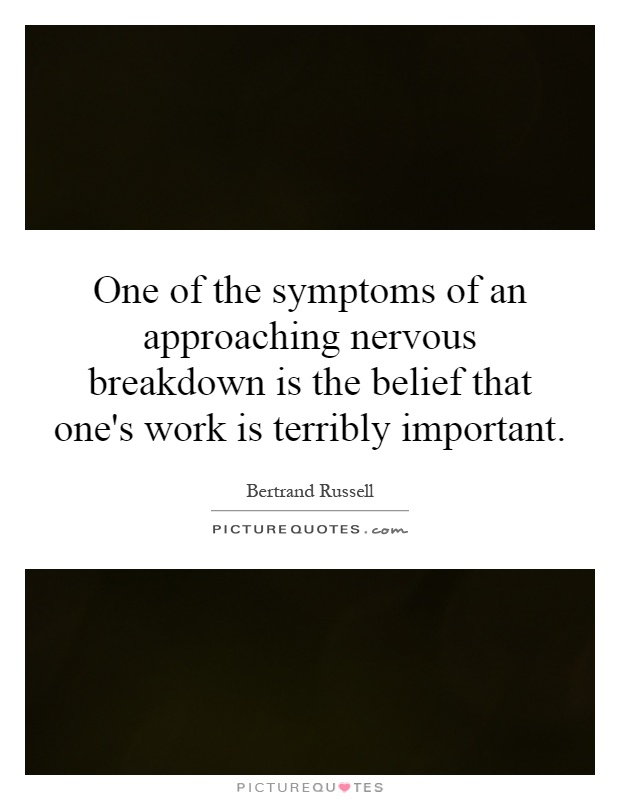One of the symptoms of an approaching nervous breakdown is the belief that one's work is terribly important

One of the symptoms of an approaching nervous breakdown is the belief that one's work is terribly important
Bertrand Russell, a renowned philosopher, mathematician, and social critic, was no stranger to the pressures of work and the toll it can take on one's mental health. Throughout his life, Russell grappled with the demands of his various intellectual pursuits and the weight of his own expectations. In his essay "The Conquest of Happiness," Russell delves into the concept of work and its impact on one's mental well-being, shedding light on the dangerous belief that one's work is of utmost importance.Russell argues that the belief that one's work is terribly important can be a symptom of an approaching nervous breakdown. This belief stems from a sense of self-importance and a need for validation through one's accomplishments. When work becomes the sole focus of one's life, it can lead to feelings of anxiety, stress, and burnout. Russell warns against placing too much emphasis on work, as it can ultimately lead to a breakdown in mental health.
Russell himself struggled with the pressures of his work and the expectations placed upon him as a public figure. Throughout his career, he faced criticism, controversy, and personal struggles that took a toll on his mental well-being. Despite his many accomplishments, Russell grappled with feelings of inadequacy and self-doubt, leading him to question the value of his work and the impact it had on his happiness.












 Friendship Quotes
Friendship Quotes Love Quotes
Love Quotes Life Quotes
Life Quotes Funny Quotes
Funny Quotes Motivational Quotes
Motivational Quotes Inspirational Quotes
Inspirational Quotes